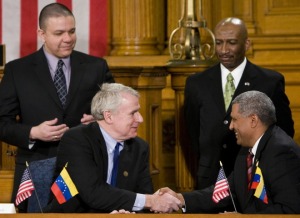
Venezuela is the nation with the 10th-largest amount of biodiversity in the world. Efforts to protect that biodiversity are highlighted in a new study by RAISG, or La Red Amazónica de Información Socioambiental Georreferenciada.
According to the study, Venezuela has the second-highest proportion of its Amazon region protected. The Amazonian basin covers an astounding 3 million square miles in South America, overlapping several different countries and encompassing a population of perhaps 33 million. Venezuela has already protected 71.5% of its share — second only to Ecuador’s 79.7%, and far ahead of Colombia, Brazil, and Peru.
RAISG measured Indigenous territory and other protected lands, which are generally the best conserved. Venezuela has 43 national parks. A respect for nature is enshrined in the constitution of Venezuela under a chapter that guarantees all citizens the right to a safe and healthy environment.
Since the Amazon Rainforest is often called the “lungs” of South America, we can breathe a little easier thanks to Venezuela.
 David Hernández-Palmar, a young Venezuelan man from the Wayuu Indigenous community, will be in New York City this Saturday to help present
David Hernández-Palmar, a young Venezuelan man from the Wayuu Indigenous community, will be in New York City this Saturday to help present 






 Yesterday, March 8th, was recognized by countries around the world as International Women’s Day. In Venezuela, there were many achievements to celebrate as well as challenges ahead.
Yesterday, March 8th, was recognized by countries around the world as International Women’s Day. In Venezuela, there were many achievements to celebrate as well as challenges ahead..jpg)

